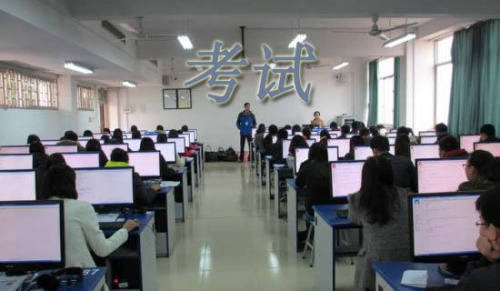- 翻譯考試初級口譯模擬試題及答案 推薦度:
- 相關推薦
初級翻譯考試口譯模擬試題2017
第一題:

The Asian economic crisis has put many companies on the edge. Many have been forced to change the way they do business. The old attitude that employees follow instructions and are unable to make decisions or act on their own initiative① leads to underused② people.
The key to increasing employee productivity is through effective management. Managers must recognize that getting employees involved in the solution boost morale③。 The decision making process should be pushed down the ladder. The focus of future organizations will shift to employee involvement, rather than power and control.
難點提示:
①主動地
②未充分利用的
③士氣
參考譯文:
亞洲金融危機使很多公司面臨崩潰的邊緣。很多公司被迫改變經營的方式。老一套的態度,即員工聽從指揮,而不能自做主張或獨斷獨行,常常使得員工不能人盡其才。
提高員工生產力的關鍵是通過有效的管理。管理者們必須認識到,讓員工參與解決問題可以鼓舞士氣。決策程序應該下放。未來組織機構的重心將轉向員工參與,而不是權力和控制。
第二題:
The “standard of living” of a country means the average person’ s② share of the goods and services which the country produces. A country’ s standard of living, therefore, depends first and foremost on its capacity to produce wealth. “Wealth” in this sense is not money, for we do not live on ② money but on things that money can buy: “goods” such as food and clothing, and “services” such as transport and entertainment.
A country’s capacity to produce wealth depends upon many factors, most of which have an effect on one another. Wealth depends to a great extent upon a country’s natural resources, such as coal, gold, and other minerals, water supply and so on. Some regions of the world are well supplied with coal and minerals, and have a fertile soil and a favorable climate; other regions possess none of them.
難點提示:
①一般人,老百姓
②靠……為生
參考譯文:
任何一個國家的生活水平,指的是那個國家生產的產品和提供的服務為普通老百姓分享的情況。因此,一個國家的生活水平,首先取決于它創造財富的能力。在這個意義上,財富并不是指金錢,因為我們生存靠的不是錢,而是靠錢能買到的東西:比如食物和衣服這些“產品”,交通和娛樂這些“服務”。
一個國家創造財富的能力取決于很多因素,其中大部分因素相互作用。財富在很大程度上依賴于一個國家的自然資源,比如煤礦、金礦和其他礦物質、水源等等。世界上有些地區煤礦和礦物質的儲量豐富,土壤肥沃,氣候適宜,其他地區卻一樣都不具備。
【初級翻譯考試口譯模擬試題】相關文章:
2017翻譯考試初級口譯模擬試題及答案10-06
翻譯資格考試口譯模擬試題10-13
2017翻譯考試中級口譯模擬試題07-28
2024初級翻譯考試口譯模擬真題及答案07-01
2017翻譯考試中級口譯模擬試題答案10-05
上半年翻譯考試初級口譯模擬真題及答案10-04
2017初級翻譯考試口譯必備詞匯09-25
2017中級翻譯資格考試口譯模擬試題08-26
2024初級翻譯資格模擬試題及答案10-30
翻譯考試中級口譯模擬真題10-09






